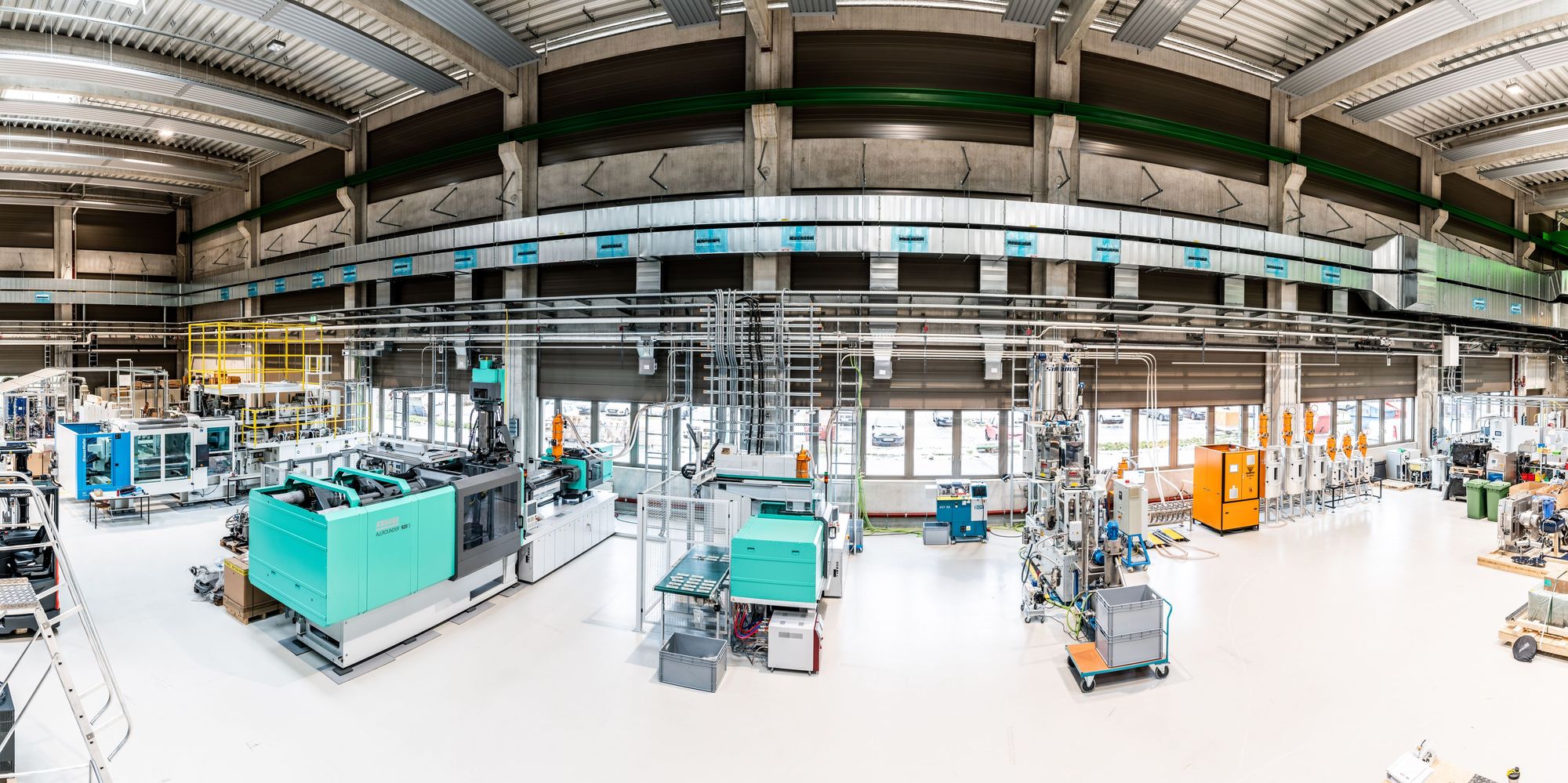
Way2K: Industry interviews in the lead-up to the K 2022 trade fair
“There is a lack of higher quality recyclates, more consistent input streams and standards”
Prof. Endres, the plastics industry is often the subject of criticism. What isneeded for people to appreciate the material?
We must show that our daily lives are inconceivable without plastics and make it clear that plastics make a key contribution to a sustainable economy. Plastics are indispensable for achieving our climate targets and significantly reducing our carbon footprint. One way to achieve this goal is to use resources such as energy with increasing efficiency, and another is to establish a circular economy. Moreover, improved recycling technology represents a crucial tool towards achieving these goals. This task is huge and extremely multi-faceted, but it can be handled.

Which areas show the greatest challenges at present?
It’s a triad: we don’t have enough higher-quality recyclates yet, nor enough input streams, and there are still not enough standards in this field. All of these challenges are closely related; starting with the market: there is currently already a high demand for high-quality recyclates, but it cannot be met. Let’s take a look at the automotive industry as an example and assume that in the future there is a quota of 25 percent recyclate per vehicle. Today, the share of plastics per vehicle is around 300 kilograms. This means that 75 kilograms of recycled material would have to be used in the future. Last year, about 2.6 million vehicles were built in Germany; it was a very bad year because of the Covid pandemic. So already for this number, almost 200,000 tons of highquality recyclate with constant colour quality and delivery guarantee would be needed for instance just to be able to meet the quotas in this one industry sector. Another example is the bottleneck of white or transparent recyclates.
How do you obtain the input streams required to generate sufficient quantities of consistent recyclate quality?
This is a huge task. These input flows are still a strongly limiting factor, especially in the post-consumer sector. This is because today’s users cannot yet rely on receiving sorted material in sufficient quantities with a longer-term delivery guarantee. Of course, a better sorting of plastic waste is necessary to obtain single-variety material. But it is also a matter of improving the various recycling processes. Their degrees of maturity are currently still very different.
Which one is the most matured?
The mechanical processes are already established. For the physical processes, during which the plastic is dissolved out of other substances by means of a specifically effective solvent, the first industrial plants are available. The chemical processes, in which the plastics are depolymerized or broken down even further into hydrocarbons still need to be improved, particularly in terms of energy efficiency and yield. However, they also have some fundamental advantages. The quality of their recyclates is high, achieving colour purity and consistent material performance. Such recyclates also obtain approval much more easily for critical applications, such as the food sector. Simply put, the higher the recyclate quality, the higher the technical effort involved, and therefore the cost.
What is your degree of progress in terms of setting rules and standards within recycling?
Both are enormously important, and at all levels. There are already approaches – still very rudimentary ones however – on how to characterise input flows. These were essentially developed by the dual systems. In addition, we need standards for defining the resulting recyclate qualities. For example, it must be specified which volatile substances may still be present, how this is to be measured exactly, and who is responsible. Currently, the idea is that if there is nothing to worry about in the input stream, there is nothing to worry about in the recyclate. We also need to have standards for colours. Every recyclate needs a trade name to ensure you get the same product the next time you order it. In addition, all recyclates lack information on long-term properties or specific parameters for processing or crash simulations. All this is not very difficult to realise, after all, manufacturers of virgin material are demonstrating that; they supply a great deal of information and specific parameters for each product.
What contribution are individual processes making towards sustainability?
That is not so easy to say. Basically, chemical recycling could generate large quantities of high-quality recyclate. Conversely, mechanical recycling is much more sustainable in most cases, since energy and resource input is significantly lower, and the polymer structures are also preserved. It is also difficult to determine which actors in the recycling value chain are credited with the sustainability benefits achieved in each case, for example the input supplier, the recycler or the user of the recyclate. In chemical recycling, for example, the carbon is recycled but not the actual material. In addition, the user does not get the physically recycled carbon, but receives a mass-balanced certificate which, to top it all off, has to be purchased. If users waive the certificate, they receive the same material, but minus the certificate.
Video statement Prof. Dr. Hans-Josef Endres: https://vimeo.com/695610913
Industry interviews on the road to the K:
The world is facing major challenges: Climate change must be fought; the environment must be protected, and resources must be conserved. It is also important to make good use of the opportunities offered by digitalisation. The plastics industry has a key role in this process because plastics are ubiquitous in the world.
Climate protection, digitalisation and the circular economy are therefore also the three major topics at K 2022, the world’s leading trade fair for the plastics industry. To get in the mood for the industry meeting in autumn 2022, the VDMA is letting representatives of the plastics machinery industry and all other stakeholders in the sector have their say through weekly interviews.
VDMA Plastics and Rubber Machinery
More than 200 companies are members of the trade association, covering over 90 percent of the industry’s production in Germany. Ten percent of our member companies come from Austria, Switzerland and France. German member companies represent a turnover of 7 billion euros in core machinery and 10 billion euros including peripheral technology. Every fourth plastics machine manufactured worldwide comes from Germany in terms of value; the export quota is 70 percent. Ulrich Reifenhäuser, managing partner of Reifenhäuser GmbH & Co KG, is the chairman of the trade association.